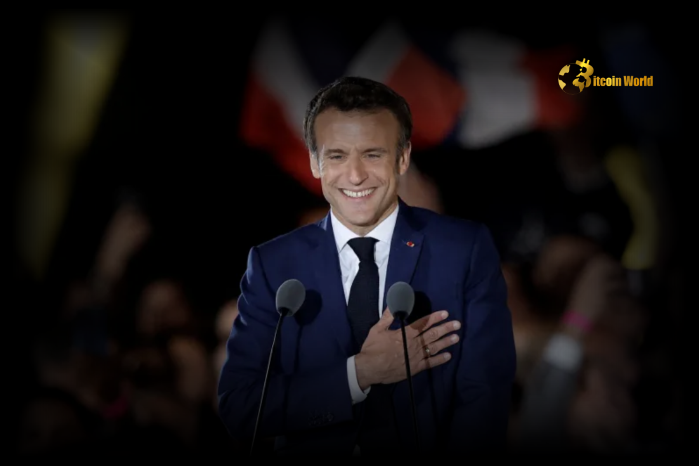The arrest of Telegram co-founder Pavel Durov in France has ignited a firestorm of international controversy, raising serious questions about freedom of speech and the treatment of tech entrepreneurs. Amidst growing global criticism, French President Emmanuel Macron has publicly stated that he was completely unaware of Durov’s visit to France and denies ever inviting him. But does this denial quell the rising concerns, or does it fuel the flames of suspicion further? Let’s dive into the details of this unfolding saga.
Macron’s Serbia Statement: ‘I Didn’t Invite Durov’
During a recent diplomatic visit to Serbia on August 29th, President Macron addressed the mounting criticism head-on in a televised press conference. When questioned about Pavel Durov’s arrest, Macron firmly stated that he had no prior knowledge of Durov’s presence in France. According to translated reports, Macron’s exact words were:
“As far as I’m concerned, I was absolutely unaware of Mr. Durov’s coming to France. And this is quite normal because I have not been aware of the coming of nationals from all over the world whether they have French nationality or not.”
Macron further emphasized that Durov’s case is now in the hands of the “independent action of the French justice system,” attempting to distance the executive branch from the legal proceedings. He maintains that the decision to detain the tech visionary was purely legal and devoid of any political motivation.
- President Macron claims no knowledge of Pavel Durov’s visit to France.
- Macron insists Durov’s arrest is a matter for the independent French justice system.
- He denies any political motivation behind Durov’s detention.
Currently, Durov is formally charged by French prosecutors and is out on a hefty 5 million euro bail. However, his freedom is restricted; he must remain in France and report to law enforcement authorities every week. This situation has sparked widespread debate: Is this truly about justice, or is there more to the story?
International Outcry: Is France Cracking Down on Free Speech?
The arrest of Pavel Durov has triggered a wave of condemnation from the international community, particularly within the tech and cryptocurrency sectors. Many perceive this as a worrying sign of France potentially stifling free speech and innovation. Critics are drawing parallels to authoritarian regimes, expressing concerns about the direction of France’s approach to technology and online expression.
Immediately following Durov’s detainment, voices of dissent erupted across social media platforms. Prominent figures in the crypto world and beyond have voiced their outrage. Gabor Gurbacs, former director of digital asset strategy at VanEck, didn’t mince words in his reaction to Macron’s denial of political influence. He questioned the very foundation of justice and freedom of expression:
You arrest the guy then see if he did something wrong? Is this the 'rule of law' and 'freedom of expression' you are talking about? @EmmanuelMacron https://t.co/W29rKk9w0m
— Gabor Gurbacs (@gaborgurbacs) November 24, 2023
Another strong reaction came from Mert, a developer deeply involved in the Solana ecosystem. Mert’s question to President Macron cuts to the core of the issue of personal liability and freedom of expression in the digital age:
Why aren't you personally in jail for not controlling 100% of all crime in France? @EmmanuelMacron
— mert | helius.dev (@0xMert_) November 24, 2023
Mert further elaborated on the dangerous precedent being set:
“You can’t keep founders personally liable, and charge them up to 20 years, for not moderating speech and at the same time claim you’re deeply committed to freedom of expression.”
These are just a few examples of the widespread unease and anger emanating from the tech community. The arrest has ignited a crucial debate about the balance between regulation, freedom of expression, and the responsibility of tech platforms.
Fear of a Tech Crackdown: Are More Entrepreneurs at Risk?
Beyond the immediate outrage over Durov’s arrest, there’s a growing apprehension about a potential broader crackdown on decentralized technology and entrepreneurs who champion free speech. This fear isn’t unfounded. The implications of Durov’s situation are far-reaching, potentially influencing how other nations approach the regulation of online platforms and digital content.
Adding fuel to these concerns, Rumble CEO Chris Pavlovski reportedly made the decision to leave Europe, citing alleged threats from French officials directed at his company. While details remain scarce, this incident underscores the palpable tension and uncertainty felt by tech companies operating in Europe, particularly those prioritizing free speech.
Is Durov’s arrest an isolated incident, or is it the tip of the iceberg? The coming weeks and months will be crucial in determining the trajectory of France’s approach to tech regulation and its commitment to the principles of free expression. The world is watching closely to see if this situation escalates into a broader chilling effect on innovation and open communication.
Key Takeaways:
- Macron’s Denial: The French President denies inviting or being aware of Pavel Durov’s visit, attempting to distance himself from the arrest.
- International Backlash: France is facing significant international criticism, with many viewing Durov’s arrest as an attack on free speech.
- Free Speech Concerns: The case raises serious questions about the liability of tech founders for user-generated content and the future of free expression in the digital age.
- Potential Crackdown: There are growing fears of a broader crackdown on decentralized technology and free speech-oriented platforms in Europe.
The Pavel Durov saga in France is far from over. It serves as a stark reminder of the ongoing tensions between governments, technology, and the fundamental right to free expression in an increasingly digital world. As the legal proceedings against Durov continue, the tech community and free speech advocates worldwide will be keenly observing France’s next moves, hoping for a resolution that upholds both justice and the principles of open communication.
Disclaimer: The information provided is not trading advice, Bitcoinworld.co.in holds no liability for any investments made based on the information provided on this page. We strongly recommend independent research and/or consultation with a qualified professional before making any investment decisions.


